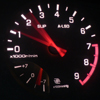Whats More Fuel Efficient?
Announcements
-
Similar Content
-
Latest Posts
-
Jack the back of the car up, pull that wheel off, pull that sensor out, and put a bore scope into the hole to inspect the outer casing, see if anything looks damaged before you pull the whole thing apart.
-
Ergh... So I pulled the speed sensor out again and the tip was shiny so I think it's rubbing the bearing. The bearing contains the magnets for the speed sensor so I think when the first sensor broke it damaged the magnet ring on the bearing. This is just a Google image, but there is a hole going to the bearing. So when the tip broke off the old sensor I'm guessing it fouled the bearing... As the magnet is only protected by a plastic cover it would be easy to damage it. So I guess I'm doing a bearing again.
-
My thinking is that if the O2 sensor is shot then your entire above described experience is pure placebo.
-
Here is the mess that I made. That filler there was successful in filling dents in that area. But in the middle area. I can feel dents. And I've gone ocer it multiple times with filler. And the filler is no longer there because i accidently sanded it away. I've chased my tail on this job but this is something else lol. So I'm gonna attempt filler one more time and if it doesn't work I'll just high fill primer the door and see where the issues are because guidecoat is of no use atm.
-
Ok, so I think I sort of figured out where I went wrong. So I definitely overthinked it, and I over sanded, which is probably a large part of the problem. to fix it, I ended up tapping some spots that were likely to be high, made them low, filled them in, and I tackled small sections at a time, and it feels a lot better. I think what confused me as well is you have the bare metal, and some spots darker and some are lighter, and when I run my finger across it, it' would feel like it's a low spot, but I think it's just a transition in different texture from metal to body filler. When your finger's sliding on the body filler, and crosses over to the bare metal, going back and forth, it feels like it's a low spot. So I kept putting filler there and sanding, but I think it was just a transition in texture, nothing to do with the low or high spot. But the panel's feels a lot better, and I'm just going to end up priming it, and then I'll block it after with guide coat. Ended up wasting just about all of my filler on this damn door lol
-







Recommended Posts
Create an account or sign in to comment
You need to be a member in order to leave a comment
Create an account
Sign up for a new account in our community. It's easy!
Register a new accountSign in
Already have an account? Sign in here.
Sign In Now